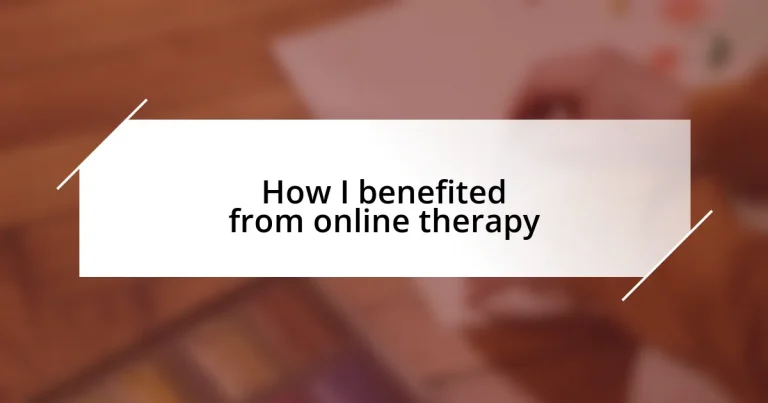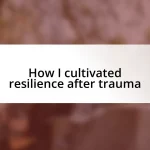Key takeaways:
- Online therapy offers significant benefits like accessibility, flexibility in scheduling, and diverse therapist options, enhancing comfort and openness during sessions.
- Finding the right therapist involves looking beyond credentials to personal connection, reading reviews, and utilizing introductory sessions for compatibility assessment.
- Effective coping strategies learned during therapy, such as mindfulness and cognitive reframing, empower individuals to manage anxiety and shift perspectives on challenges.
- Long-term effects of online therapy include improved self-awareness, thoughtful reactions to challenges, and continued application of therapeutic skills in everyday life.
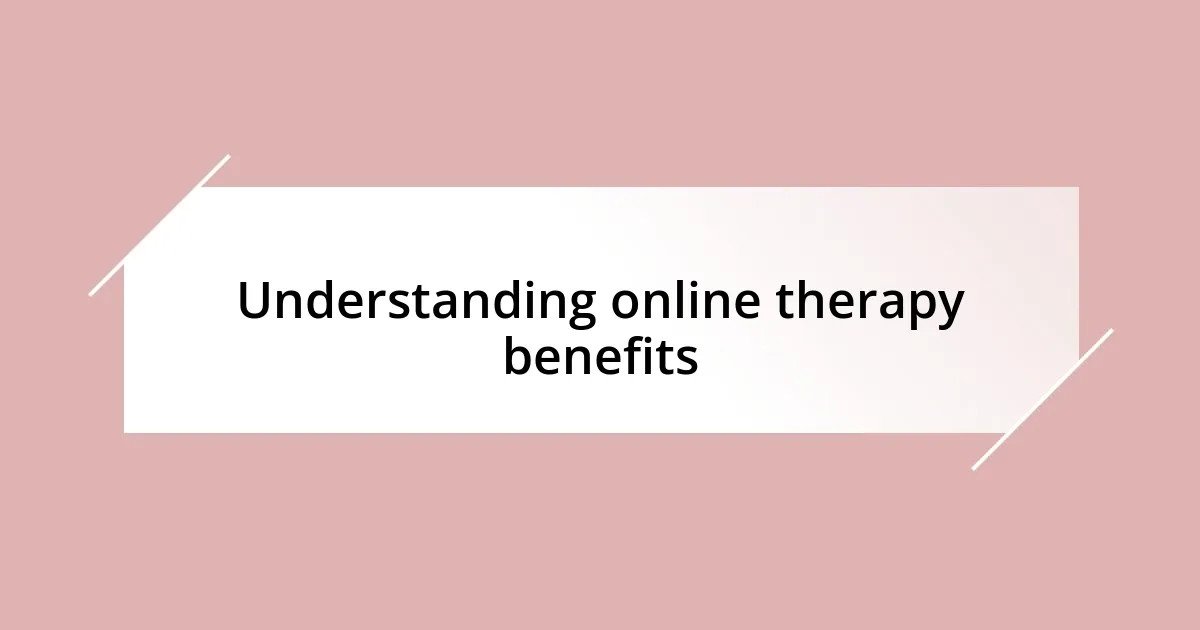
Understanding online therapy benefits
One of the most significant benefits of online therapy is accessibility. I remember the first time I logged into a session; it felt like a weight had lifted. There’s something comforting about being in my own space, where I could truly open up without the anxiety of a commute or an intimidating office setting. Isn’t that a relief, to know you can seek help from the comfort of home?
Another advantage is the flexibility in scheduling. I once had a late-night session after a particularly tough day at work, and it was a game-changer. It’s remarkable how being able to choose a time that works for you can ease the pressure of seeking help. Have you ever considered how your busy life could make traditional therapy feel insurmountable?
Furthermore, the variety of online platforms allows us to connect with specialists we might not have had access to otherwise. I remember browsing through countless therapists from different backgrounds, and it was eye-opening to see how many options I had. This diversity means finding a therapist that resonates with you personally. Don’t you think that connection is crucial for effective therapy?
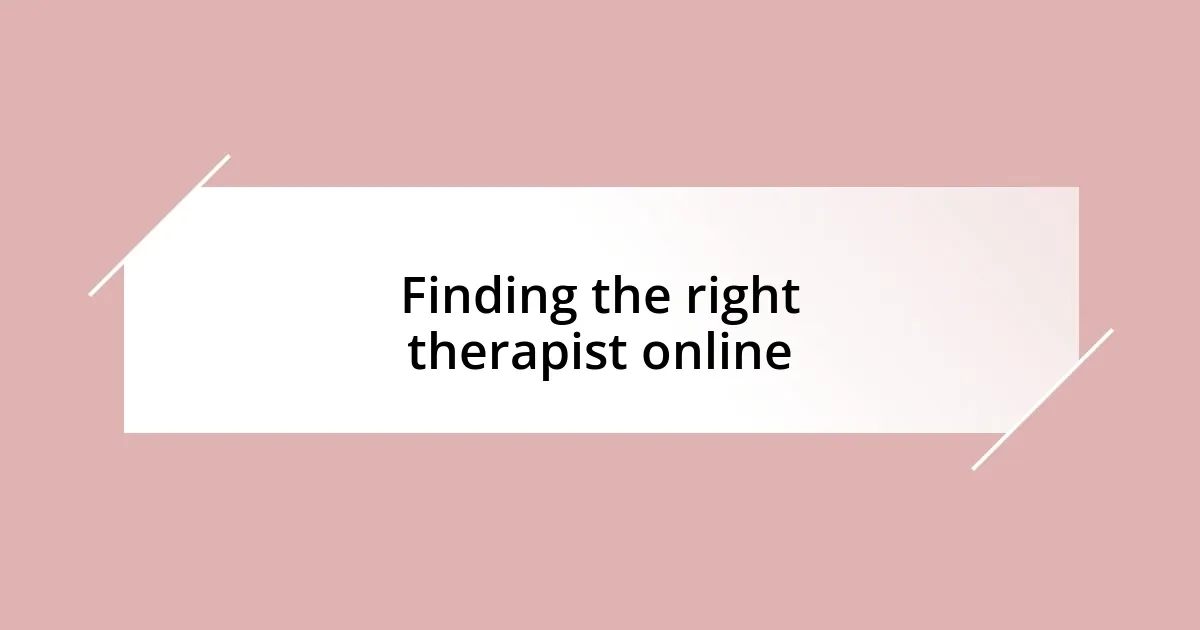
Finding the right therapist online
Finding the right therapist online can feel overwhelming at first. I remember diving into a sea of profiles, each portraying their qualifications and specialties. It made me realize that the expertise of a therapist is important, but it’s the personal connection that really matters. Just like you wouldn’t just pick any book off the shelf, you want to ensure the therapist is someone you truly resonate with.
As I sifted through various platforms, I learned to look beyond credentials alone. I found that reading client reviews and testimonials offered invaluable insight into a therapist’s style and effectiveness. One, in particular, had reviews that spoke of empathy and warmth, which reassured me. I thought to myself – wouldn’t you want someone who truly understands your struggles? It’s not just about qualifications; it’s about feeling seen and heard.
In my journey, I discovered that many therapists offer introductory sessions or consultations. This allows a trial period before committing to a full series of sessions. I took advantage of this and had a short conversation with a therapist who seemed promising. It helped me build confidence in my choice, confirming what I needed emotionally. Have you ever tested the waters before making a decision? It’s such a helpful strategy when searching for your ideal therapist.
| Factor | Considerations |
|---|---|
| Qualifications | Look for therapists with relevant degrees and certifications. |
| Reviews/Testimonies | Read past client experiences to gauge personality and fit. |
| Introductory Sessions | Utilize initial meetings to assess compatibility before commitment. |
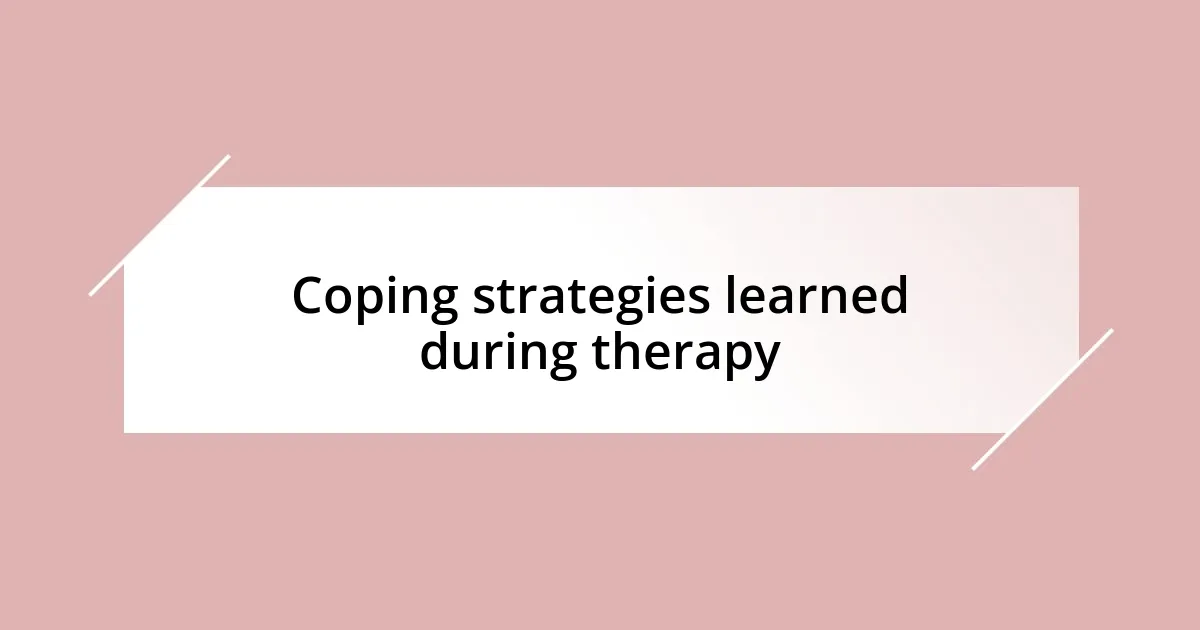
Coping strategies learned during therapy
When I first started online therapy, I was amazed by the array of coping strategies I picked up. It felt like unlocking a treasure chest of tools that I could apply not only during sessions but in everyday life. For example, one of the most impactful strategies I learned was mindfulness. Initially, I approached it with skepticism, yet after practicing it daily, I noticed my anxiety levels decreased significantly. I often pause to take a few deep breaths, especially in stressful moments. Have you ever tried that? It’s surprisingly grounding.
Another technique that resonated with me was cognitive reframing. This process involves shifting my perspective on difficult situations. I remember a day when I felt overwhelmed at work, and instead of spiraling into self-doubt, I applied this strategy. I started to view challenges as opportunities to grow, which transformed my mindset. Here are a few coping strategies that I found particularly helpful during therapy:
- Mindfulness Meditation: Practicing mindfulness helps to anchor me in the present, reducing anxiety.
- Cognitive Reframing: I learned to shift my thoughts from negative to positive, which changes my emotional response to situations.
- Journaling: Writing down my thoughts allows me to process emotions and gain clarity.
- Grounding Techniques: Simple methods, like focusing on my senses, can bring me back to the moment when feeling overwhelmed.
- Structured Problem-Solving: This helps me break down issues into manageable steps, making them feel less daunting.
Embracing these strategies gave me a sense of ownership over my mental well-being, which was liberating. Have you thought about which strategies might work for you? Exploring new approaches can be a profound journey towards healing.
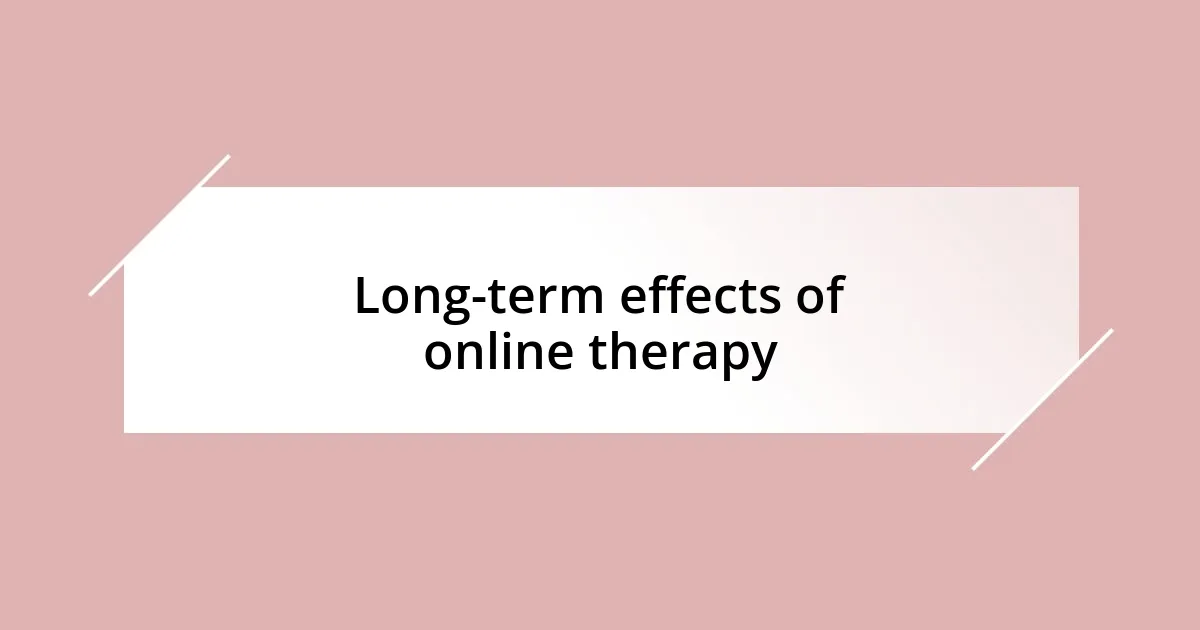
Long-term effects of online therapy
The long-term effects of online therapy can be transformative. After several months of sessions, I noticed a shift in my thought patterns that felt almost revolutionary. For instance, I found myself reacting more thoughtfully to challenges at work, rather than getting swept away by my initial emotional responses. Have you ever felt that moment when new insights click into place? It’s exhilarating to experience that kind of growth.
One significant lasting impact was the enhanced self-awareness I developed. I recall one particular session where my therapist encouraged me to explore my triggers. This deep dive revealed patterns I hadn’t recognized before, allowing me to make informed choices about how to handle uncomfortable situations. It was like holding up a mirror to my emotional landscape, which, believe me, was both enlightening and sometimes a bit scary. But isn’t it fascinating how understanding ourselves better can influence our everyday lives?
Moreover, the skills I acquired through online therapy continue to serve me well. I still practice mindfulness daily, and I often reflect on my thoughts before reacting, which has improved my relationships. Just the other day, a friend noticed my calm demeanor during a stressful incident and asked how I maintained such composure. I could only smile, knowing that the tools I learned through therapy have become a part of my everyday existence. It’s incredible how the lessons from therapy can have a ripple effect, transforming not just our inner world but also how we interact with others.












